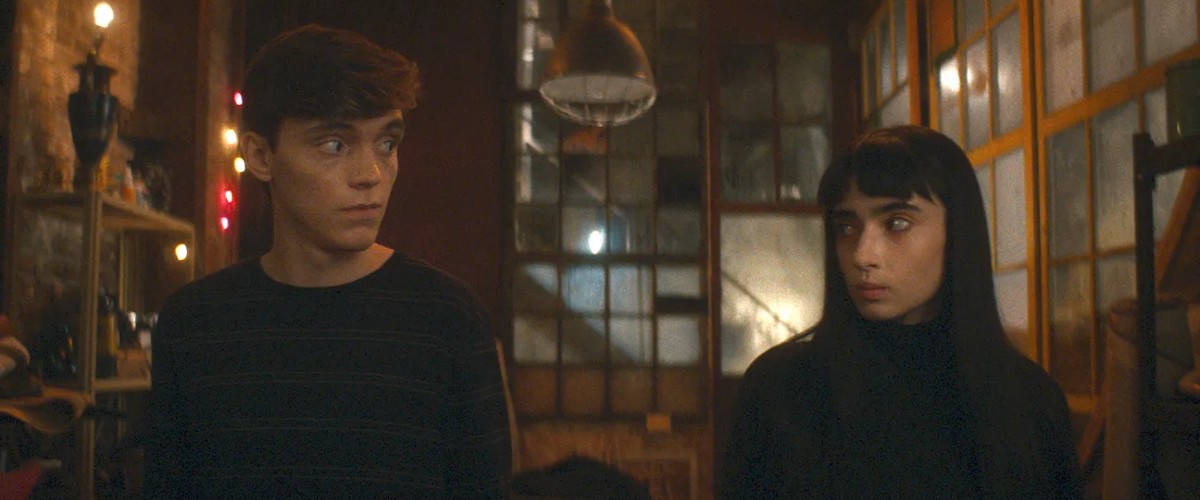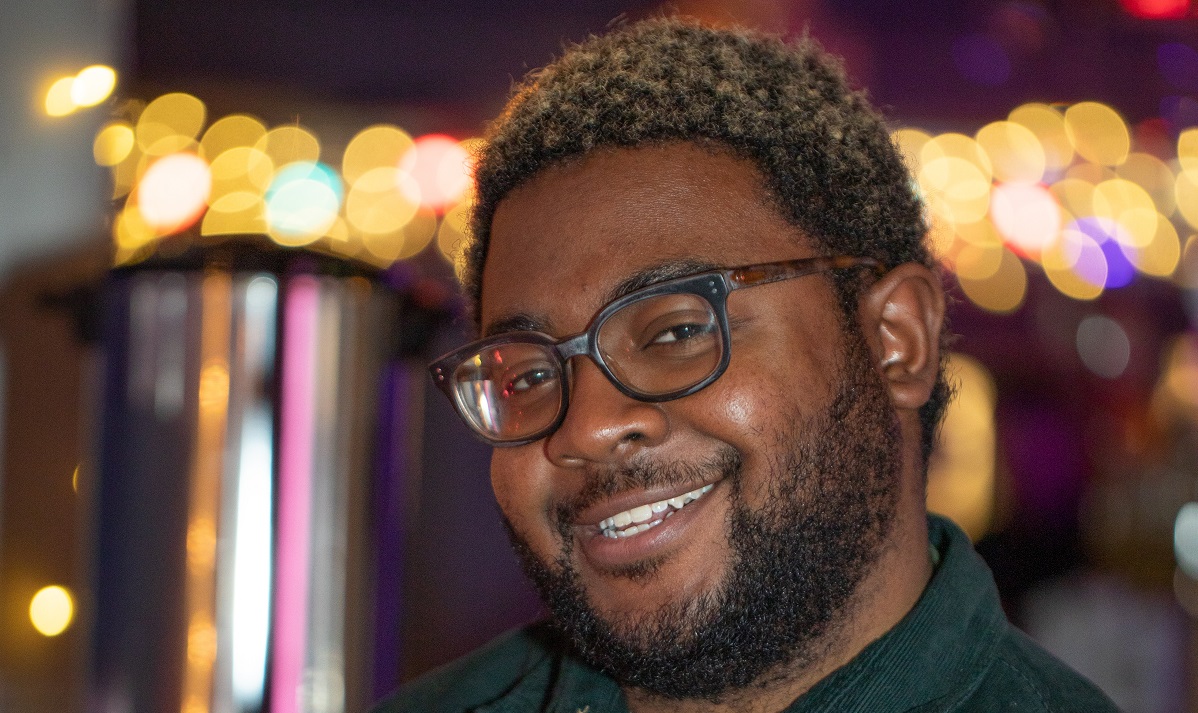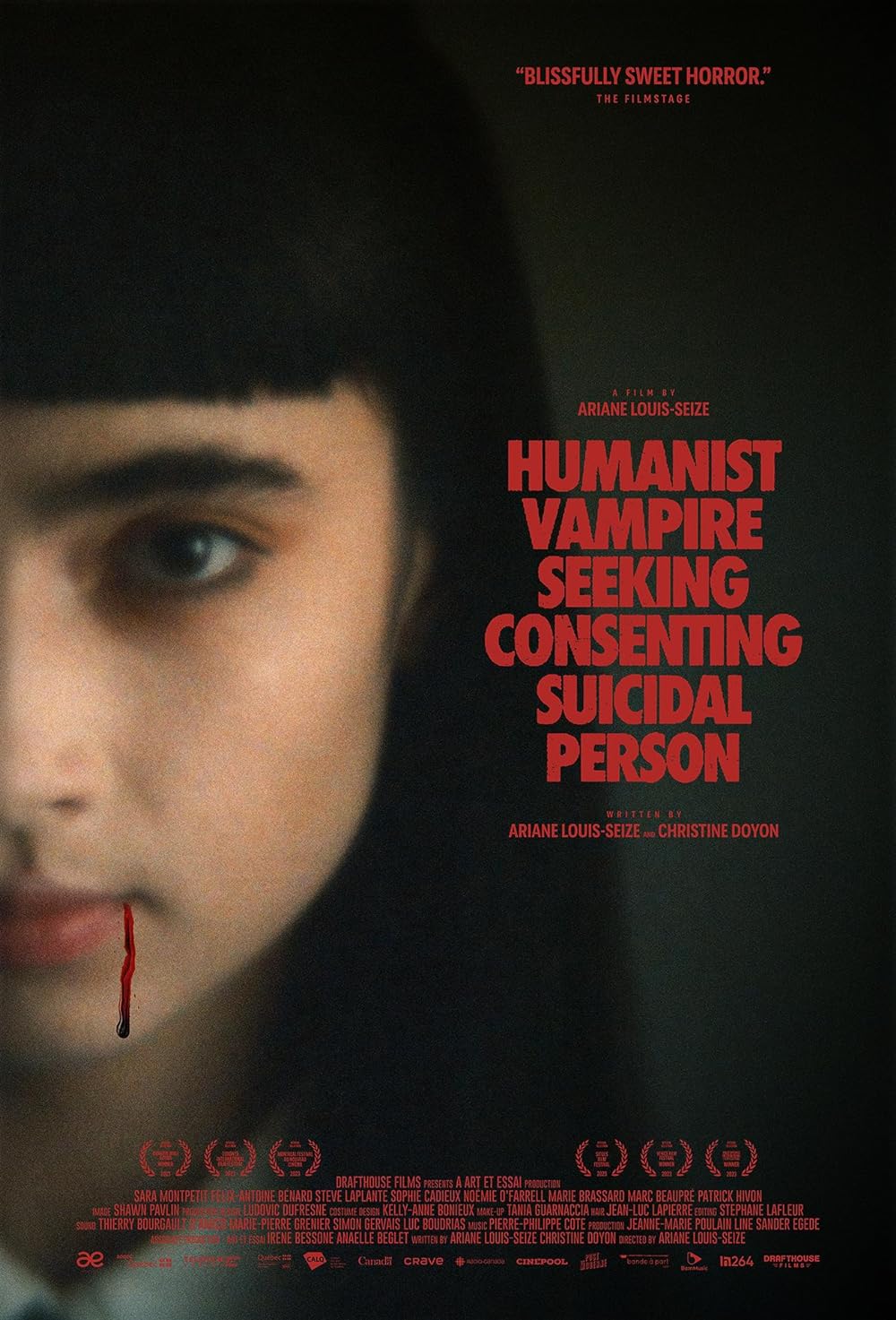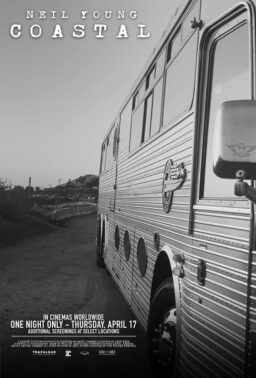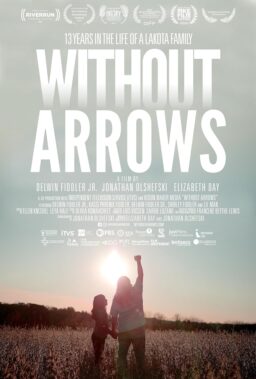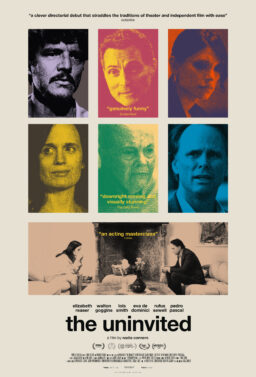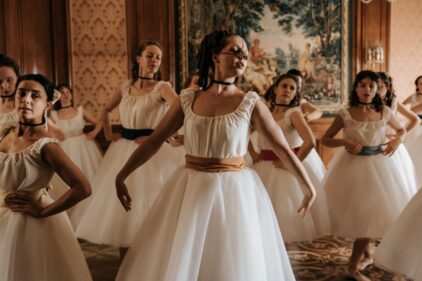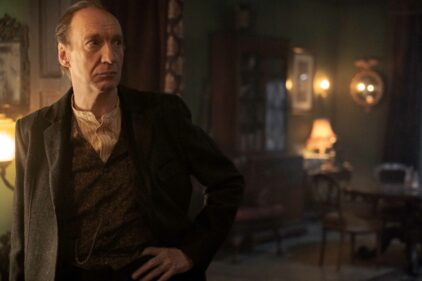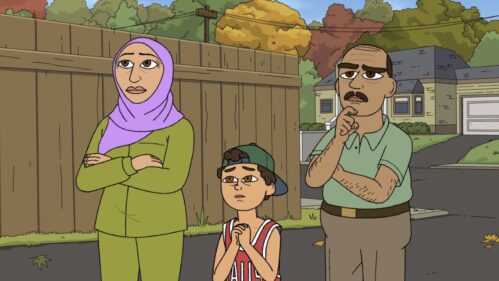Vampires are all the rage in film and television these days. Some of them run hotels (“Interview with the Vampire“), some live polyamorously in Staten Island (“What We Do in the Shadows“), and some dance the ballet while torturing their enemies (“Abigail“). Creative depictions of modern vampires have evolved. Storytellers are more cognitive in their exploration, investigating what lies underneath the blood-sucking lifestyle and how vampires exist in the world. In keeping with this trend, Ariane Louis-Seize’s delightful “Humanist Vampire Seeking Consenting Suicidal Person” drives a wooden stake of complexity through vampire mythology, offering a fresh new take through a pacifistic protagonist.
Young Québecois-based vampire Sasha (Lilas-Rose Cantin) never had any urge to suck human flesh, unlike her bloodthirsty family. One specific incident on her birthday involving a clown family buffet she was too startled to participate in leaves her with profound PTSD that neurologically affects her. Now, the desire she would’ve had for blood has been overtaken by empathy, preventing her fangs from forming.
Despite her pacifistic soul and lack of fangs, Sasha still has an appetite for blood. As she ages into a teenage vampire—68 in human years presenting as a human teen— Sasha (Sara Montpetit) still lives at home with her parents (Steve Laplante and Sophie Cadieux), freeloading off their Capri-sun-shaped blood pouches. Tired of her not contributing to their household’s food storage, her parents force Sasha to live with her cold-yet-chic older cousin Denise (Noémie O'Farrell), hoping she will teach her how to hunt humans.
Meanwhile, Paul (Félix-Antoine Bénard) is on the opposite end of the same coin. He’s a hapless, socially anxious teen who’s bullied by everyone, from his peers to his principal. He works at a bowling alley alongside his main tormenter, Henry (Arnaud Vachon).
One evening, Sasha sees Paul contemplating suicide on top of his job’s roof, but he doesn’t follow through. Curiously, Sasha follows him into a crane yard and startles him with her vampire qualities, and he runs into a crate. As fate would have it, soon Sasha and Paul’s world collide at a suicide help group where they form a pact, offering Sasha his blood so she could eat without moral guilt, and he could die.
The film digs its fangs into Sasha’s vampiric individualism while illustrating her entrapment caused by their conflicting circumstances, which she can’t control—similar to, say, Remy and his desire to cook in a rat-killing society or Luca wanting to experience being a kid despite his sea monster identity. For Sasha, it’s her desire for her fangs to drop and fit into her family unit without having to kill another human being.
Seemingly inspired by the progressiveness of today’s Gen-Z culture clashing with one of the most murderous mythological creatures, Sasha’s problem is well-depicted. Louis-Seize stylishly personalizes Sasha’s worldview (toying with lighting and sound to signal Sasha’s inner desires or verbalize her enclosed loneliness) while leaving room for subtlety. The same sentiment applies to Sasha’s emotional therapy human friend Paul, whose loneliness and longing for depth are also resonant and explored. While not as intriguing as Sasha, Louis-Seize and Christine Doyon’s script does sizable work in meeting them in the middle and flaring their connection.
Sara Montpetit delivers a fascinating breakout performance. She captures a specific Gothic teen angst and loneliness in a quiet yet outspoken manner but whips out self-assured sheer confidence when needed. She conveys strong emotions with simple glares, anxious expressions, and good comic timing, like a young Winona Ryder if she were French-Canadian. Bénard also makes a substantial scene partner, conveying just enough humanity and humor to align with the film’s tone. His depressed characteristics and the body language he carries to Paul make him an always empathetic character.
While Sasha and Paul’s dynamic drives the film’s story, the structure can be imbalanced: developing the star-crossed loners and their worlds takes time. Then it deviates from its focus well into its second act as Sasha and Paul venture to accomplish his dying wishes. Yet even in the story’s shortcomings, “Humanist Vampire Seeking Consenting Suicidal Person” is a charming, dark, comedic romp for a new generation that is a welcoming new branch to the vampire cinema tree. It’s one of the year’s strongest debuts, bolstered by its compassionate leading heroine while making a blood-soaked calling card for Louis-Seize.

